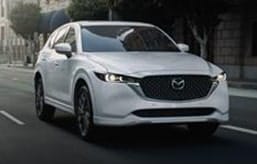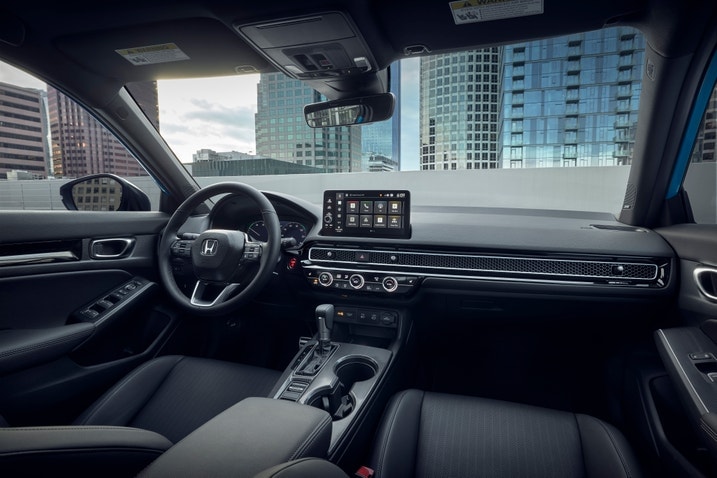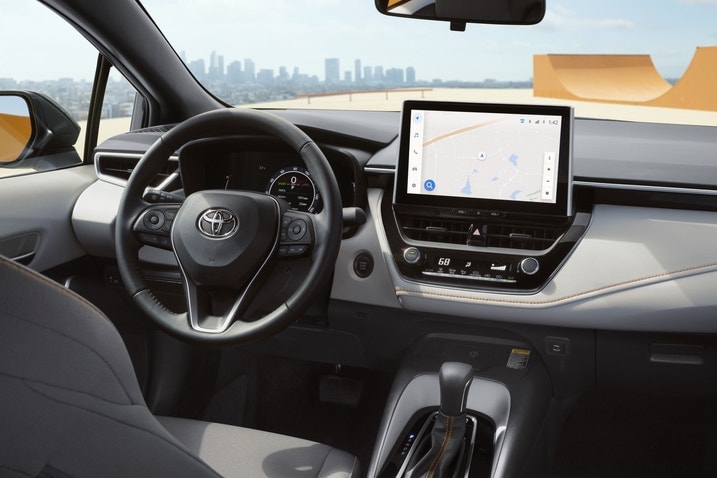- The Honda Civic is available as a roomy, spacious hybrid with plenty of power and fuel economy to match.
- The Toyota Corolla is one of the cheapest hybrids around with optional all-wheel drive and great fuel economy.
- Which one is best?
2025 Honda Civic Hybrid vs. Toyota Corolla Hybrid: Which Small Hybrid Is Best?
An on paper battle between two long-standing Japanese compacts
Hybrids are a popular choice for new-car shoppers these days, and for good reason. They’re fuel-efficient without requiring the lifestyle adjustments necessary to own an EV or a plug-in hybrid. On top of that, they’re generally cheaper than fully electric alternatives. These two, the Honda Civic hybrid and the Toyota Corolla Hybrid, are no different and for many people represent the default choices at their price points. But which one is better for you? Let’s compare.
Price
The base Toyota Corolla Hybrid is cheaper than the Civic hybrid, at just $24,760 MSRP to the Honda's $29,845 (including destination charges). The Civic hybrid justifies its price point by being a much nicer place to be thanks to higher-quality materials and a more cohesive interior design. On top of that, the Honda promises better performance than the Corolla Hybrid and strong fuel economy (more on this below). But don’t count out the Toyota. Its low starting price also means the all-wheel-drive model is cheaper than competitors, though you won’t get the gamut of features offered by the Honda until you move up the Corolla Hybrid's trim ladder.
Powertrain & MPG
As said above, the Civic is a real performer. The hybrid powertrain used in the lineup's top two trims blends a 2.0-liter four-cylinder engine and two electric motors, resulting in 200 horsepower, 232 lb-ft of torque, and 48 mpg combined. The Corolla, meanwhile, pairs a 1.8-liter inline-four with a pair of electric motors, all of which totals 138 hp and 105 lb-ft of torque. The little Toyota will net up to 50 mpg combined per the EPA, just beating out the Civic. Adding all-wheel drive to your Corolla Hybrid’s spec sheet will raise the price (to the tune of $24,900) but it might also help the power gap feel a little less substantial thanks to slightly improved acceleration due to the driven wheels. In the Civic, all-wheel drive isn't an option, but as we learned on our first drive, the new Civic hybrid can still scoot.
Space
The hybrid Civic sedan offers 14.8 cubic feet of trunk space while the Corolla Hybrid has 13.1 cubic feet of storage space. There's not much in between these two when it comes to cargo, but the Civic is a slightly bigger car, which means more room for rear seat riders at the expense of truly compact dimensions — the Corolla's more tidy size will never have you hunting for a larger parking spot. Those who need more cargo room should note the Civic hybrid can be had as a cavernous hatch (24.5 cubic feet); the Corolla Hybrid cannot.
However, the Civic has a much, much nicer and more spacious interior that feels a class above the Toyota entirely. While the infotainment graphics are a little dated, the Civic’s interior is comfortable and feels well built with plenty of legroom and high-quality knobs for the controls you need most.
Meanwhile, the Corolla’s 8-inch screen feels huge, though it can be a little slow to respond. Its interior is also fitting of its price point (hard plastics and less isolated than the Civic), and backseat room is lacking for taller adults. Still, the Corolla, like the Civic, has physical controls that are easy to reach and do just what you need.
Picking a winner is really a matter of budget.
Yes, the Civic is the nicer hybrid, but it’s also a much more expensive one that trades a little fuel economy for space and relative luxury compared to the Corolla Hybrid. The Toyota is, by contrast, a true economy car and it feels it. But it delivers excellent fuel economy, and if you don’t need the space provided by the Honda, it could be worth saving the extra bucks.





 by
by  edited by
edited by